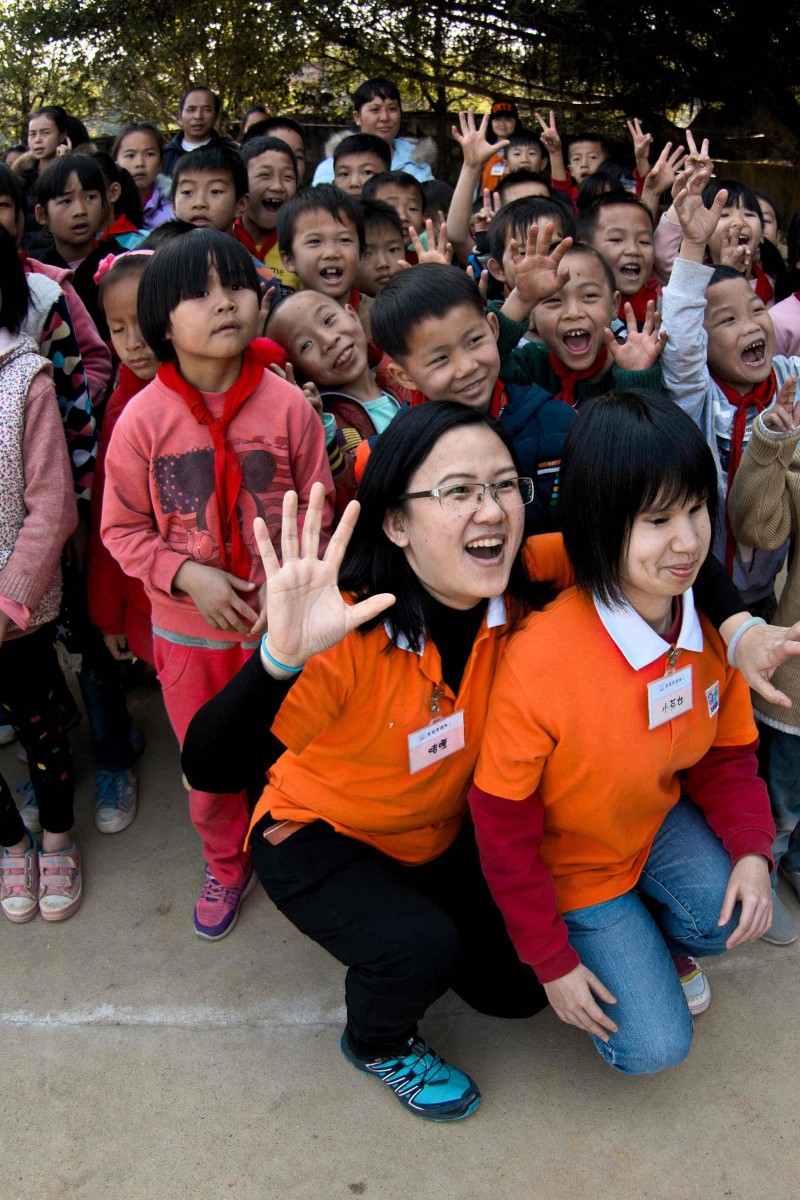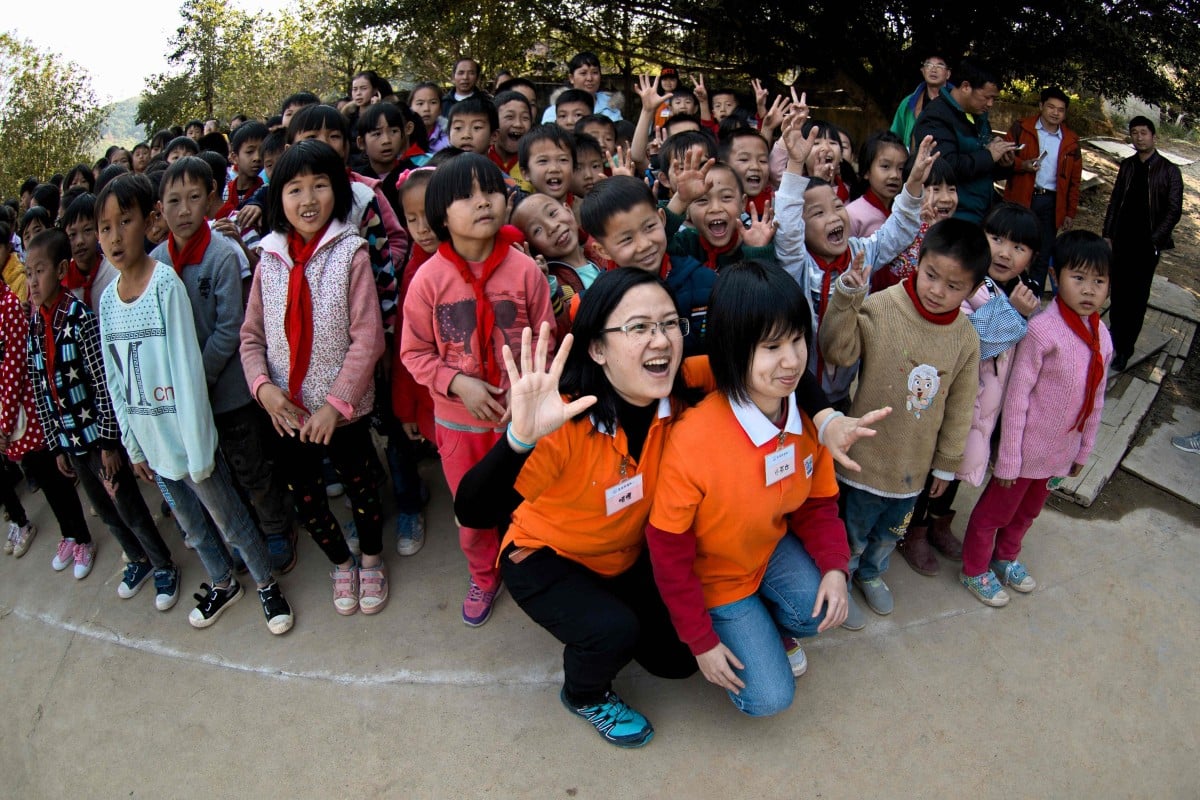
- Lam Xiu-fen has gone on three such trips, and volunteers like her show that all you need is a generous heart when it comes to doing good
- Remember, compassion has no limits!

 Volunteers Jenny Tong (left) and Lam Xiu-fen with the local schoolchildren at Sha Ling Primary School in Guangxi.
Volunteers Jenny Tong (left) and Lam Xiu-fen with the local schoolchildren at Sha Ling Primary School in Guangxi.Christmas, the time of giving, may be over now, but a group of 23 volunteers from Hong Kong, this writer included – three of them visually impaired – spent part of their holiday in Guangxi province as part of the SMYK annual Christmas service trip to help rebuild rural schools.
Louis Wong, the organiser and founder of Sang Ming Yau Kar, has worked with visually impaired volunteers before on a similar trip to visit rural schools during summer holidays.
“Through a face-to-face interview, I discovered their ability to handle unseen problems is remarkably good, so we’ve taken on visually impaired volunteers again on this trip,” said Wong, who works as an executive in the insurance industry. “For me, just by having them on the trip helped to strengthen our collective identity. Their determination to help others regardless of their own challenges brings out the best of other volunteers who are not visually impaired.”
Deaf teacher uses sign language to teach students with special needs
Lam Xiu-fen, 21, is a blind volunteer who has taken part in this event twice before. She says the visually impaired don’t have many options when it comes to doing volunteer work.
“[I] chose to go, not just for the experience, but out of a passion to help more people,” said Lam.
“For me, helping people brings me great joy because it’s a break from normally being the one who is helped. But now that I can help others in return, the sense of contribution I feel is rewarding, regardless of whether it was giving gifts away or interacting with the students in the rural schools, and getting to know them from the inside.”
But Lam also has some insights to share with the 120,000 visually impaired people in Hong Kong, especially those who are interested in charity work, but who lack the confidence or opportunity to do so.
From SPCA to Changing Young Lives - 10 organisations to volunteer for in Hong Kong
“I think if you really want to help other people, you’ll need to be more motivated. There may not be many opportunities
for us. You’ve got to state specifically how you want to help, which role you want to play,” she said.
“Some think that because they are visually impaired, they cannot help or are less capable of doing so. But I don’t buy this theory at all, because each person has a specific role in life. So if you are good at planning, for example, you can still help the organiser to create a schedule, or if you’re good at public speaking, you can still be emcees.
“Being blind doesn’t mean your other unique talents can’t be expressed.” said Lam. Jenny Tong, a mother of two, has been a volunteer for more than five years. She says that working with visually impaired people has broadened her mind.
“Instead of focusing on the hardships, we should learn to appreciate life. I greatly respect Xiu-fen, because [by] only using her ears, she was able to recognise who we were, and how we felt,” said Tong.
Time Auction connects young volunteers with Hong Kong leaders
“I feel that visually impaired people more than make up for [their loss of sight] with their ability to hone in on detail and depth.”
Tong also highlighted how working with them helped her to develop her empathy. By seeing how Lam overcame her limitations to get around, “I learned to put myself in her shoes,” she says.
She also described what the local schoolchildren thought of Lam.
“We were both folding origami with some second graders. When she left, one of the kids asked about her condition. They were very impressed with her ability to fold origami. Xiu-fen planted a seed in these kids’ minds as to what resilience is – I hope that it will be the guiding light for these rural kids in their journey ahead."
